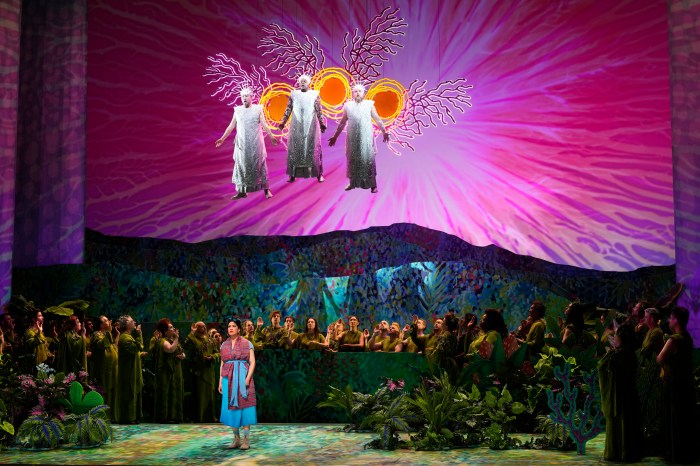“The Big Short” is so crammed with authentic technospeak about the financial markets, collateralized debt obligations and tranches, you could be forgiven for thinking it’s actually smart.
But Adam McKay’s adaptation of the Michael Lewis nonfiction book about the key players who foresaw the housing bubble and bet against the market in the run-up to the 2008 financial collapse is, in fact, quite the opposite.
It’s a paper tiger, with a massively talented cast — Ryan Gosling! Steve Carell! Brad Pitt! Christian Bale! — a concrete crack at capturing the tone of this epoch and the veneer of intelligence.
And yet it’s a shapeless mess, lacking much in the way of character development and even less in the way of a coherent story. Most of all, it’s incredibly boring. If Martin Scorsese’s “Wolf of Wall Street” captured the Caligulan excess of this universe at its height, “The Big Short” depicts the ennui that set in as the bubble neared its bursting point.
The big stars play finance bigshots, united by the simple fact that each of their nondescript, utterly one-dimensional characters managed to have the foresight to recognize the impending economic doom.
There’s nothing else interesting about any of them — in fact, each could be described with a single adjective. Bale is the quirky one, a medical doctor who sits alone in his office listening to Metallica and babbling about the bubble.
Gosling is the sleek and fancy one, who brings his ideas that Luddites such as this reviewer couldn’t possibly fully understand, to Carell’s cranky hedge fund manager. Pitt lurks along the margins, having rarely seemed less invested in a movie he was in.
Finn Wittrock, Rafe Spall and Hamish Linklater help round out the testosterone-heavy ensemble.
There’s no point in naming these characters because they are defined solely by their obsessions with money, money and more money. They don’t have social lives; they don’t partake in indulgences. They just sit there and excitedly yammer.
McKay tries to fill in the gaps by jazzing up the picture with clunky and extremely ill-fitting montages — why is there a clip of Brittany Spears doing a “Crossroads” junket appearance — and other stylistic digressions such as having Margot Robbie, Selena Gomez and Anthony Bourdain explain complex Wall Street concepts using dopey metaphors in a bathtub or at a blackjack table.
Most of all, the picture is just flat out confused — it’s about a bunch of men chasing the reprehensible goal of profiting on the backs of the misfortunes of others. There’s no one to root for, which is fine, but the hard right turn the narrative takes into guilt and moralizing is in some ways even more offensive.

















